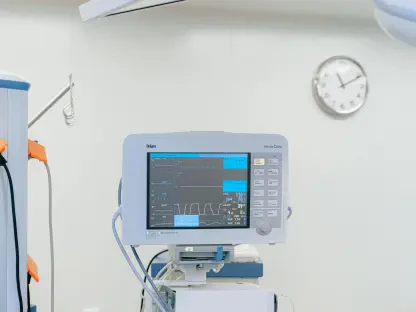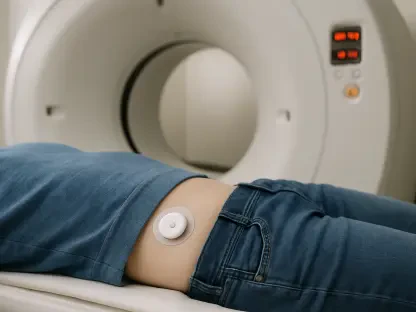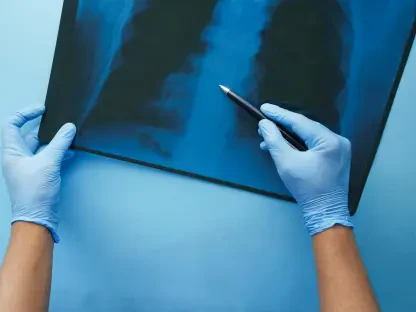In a world where millions of individuals face the heart-wrenching challenge of infertility, technological advancements in assisted reproductive technology (ART) are offering new rays of hope, and a Spain-based innovator is leading the charge. Overture Life has recently secured a coveted CE mark for its revolutionary DaVitri automated in vitro fertilization (IVF) system, marking a significant step forward in fertility care across Europe. This regulatory milestone not only validates the safety and efficacy of a system designed to streamline one of the most complex aspects of IVF but also signals a broader shift toward automation in reproductive healthcare. As societal trends like delayed parenthood continue to drive demand for fertility solutions, innovations such as DaVitri could redefine accessibility and success rates for countless patients. This achievement underscores the urgent need for precision and consistency in treatments, setting the stage for a transformative impact on how fertility clinics operate and deliver results to those yearning to build families.
A Groundbreaking Step in IVF Automation
The DaVitri system stands as a beacon of innovation in the intricate world of IVF, specifically targeting the vitrification process, which involves the rapid freezing of human egg cells to preserve them for future use. By integrating advanced microfluidics, robotics, and cloud connectivity, this benchtop device automates tasks that embryologists have traditionally performed by hand, such as managing timing exposures and handling cryoprotectants. The primary aim is to minimize operator variability, a common hurdle that can affect the success of embryo formation. For fertility clinics, this technology promises a level of consistency that could translate into higher success rates for patients, alleviating some of the emotional and financial strain associated with repeated IVF cycles. Overture Life’s approach reflects a growing recognition in the industry that automation can address critical pain points, ensuring that outcomes rely less on individual skill and more on standardized, technology-driven precision.
Moreover, the implications of automating vitrification extend beyond mere technical efficiency to reshape the daily operations of fertility clinics worldwide. With the DaVitri system, the labor-intensive nature of manual processes is significantly reduced, allowing embryologists to focus on other critical aspects of patient care. This shift could help clinics manage higher caseloads, addressing the bottleneck of limited specialized staff in an era of rising demand for ART. Additionally, the use of cloud connectivity in DaVitri enables real-time data tracking and analysis, fostering a more data-driven approach to fertility treatments. This technological edge not only enhances procedural accuracy but also builds a foundation for future innovations that could further refine IVF protocols. As a result, patients stand to benefit from a more seamless and reliable treatment experience, while clinics gain tools to scale their services without compromising quality, marking a pivotal moment in reproductive healthcare delivery.
Regulatory Milestone and Market Expansion
The CE mark awarded to Overture Life represents a crucial regulatory endorsement, confirming that the DaVitri system adheres to the stringent health, safety, and environmental standards of the European Economic Area. This certification clears the path for commercialization across continental Europe and extends to regions like the UK that recognize CE-marked products, broadening the system’s reach to a vast market of potential users. Such approval is more than a stamp of compliance; it serves as a testament to the system’s reliability and potential to transform IVF practices on a large scale. For patients grappling with infertility, this means access to a cutting-edge tool that could improve their chances of success, while for healthcare providers, it offers a solution to longstanding inefficiencies in fertility treatment delivery. The CE mark thus positions Overture Life as a key player in addressing systemic challenges within the reproductive health landscape.
Beyond the immediate market access, this regulatory achievement highlights Europe’s proactive stance in supporting fertility innovations through robust frameworks and public investments. The CE mark not only validates DaVitri’s efficacy but also signals to other regions the viability of automated IVF solutions, potentially encouraging similar approvals globally. This could lead to a ripple effect, where fertility clinics worldwide adopt such technologies to meet growing patient needs, particularly in areas where access to skilled embryologists is limited. Furthermore, the certification underscores the importance of safety in adopting new medical technologies, reassuring both providers and patients of DaVitri’s credibility. As Overture Life navigates this expanded market, the focus will likely remain on ensuring that the system integrates seamlessly into diverse clinical settings, paving the way for a new standard in IVF care that prioritizes both innovation and patient well-being across varied healthcare systems.
Addressing a Growing Need for Fertility Care
The backdrop to Overture Life’s breakthrough is a stark reality: the demand for ART is surging, fueled by rising infertility rates and societal shifts such as delayed parenthood due to career or financial priorities. Data from the European Society of Human Reproduction and Embryology (ESHRE) indicates that approximately 1.1 million patients underwent ART procedures in Europe in a recent year, reflecting a notable 20% increase from the prior period. This escalating need places immense pressure on fertility clinics to deliver effective solutions amidst capacity constraints and variable success rates. Innovations like DaVitri are poised to play a critical role in meeting this demand by enhancing procedural consistency and reducing the burden on overtaxed medical staff. For countless individuals and couples, such advancements offer a renewed chance to overcome biological barriers and achieve their dreams of starting a family in an increasingly challenging demographic landscape.
Equally important is the societal context driving this demand, as cultural and economic factors continue to reshape family planning timelines across Europe and beyond. With more people opting to delay parenthood, the reliance on ART to address age-related fertility declines has grown exponentially, creating a pressing need for scalable and reliable technologies. The automated capabilities of systems like DaVitri could help clinics expand their reach, ensuring that more patients receive timely interventions without the delays often caused by limited resources or manual process inefficiencies. This trend also aligns with governmental efforts in many European nations to bolster fertility infrastructure through funding and policy support, recognizing the profound personal and societal value of accessible reproductive care. As a result, technological strides in IVF are not just scientific achievements but vital responses to deeply human challenges, bridging gaps between aspiration and reality for millions seeking to build families.
The Future with AI and Automation Synergy
Automation in IVF, as exemplified by DaVitri, is just one part of a broader technological wave reshaping reproductive healthcare, with artificial intelligence (AI) emerging as a powerful complementary force. Overture Life is actively investing in AI, supported by a substantial €20 million loan from the European Investment Bank, to enhance its IVF ecosystem beyond mere procedural automation. AI holds the promise of aiding embryologists in critical decisions, such as selecting the most viable embryos for transfer, thereby potentially increasing success rates. This dual approach of combining automation with intelligent data analysis mirrors an industry-wide shift toward precision medicine, where treatments are tailored through technology to maximize outcomes. As the AI healthcare market continues to grow, projected to reach significant valuations in the coming years, its integration into IVF could redefine clinical standards and patient expectations alike.
The synergy between automation and AI also points to a future where fertility treatments become more accessible and predictable, addressing both technical and decision-making challenges in the field. While DaVitri focuses on streamlining complex processes like vitrification, AI applications could provide deeper insights into embryo development, reducing the guesswork that often accompanies IVF cycles. This technological convergence is expected to attract further investment and research, fostering innovations that tackle multiple facets of reproductive care. For patients, the result could be a more transparent and effective treatment journey, with higher confidence in outcomes due to data-backed decisions. Meanwhile, clinics might benefit from reduced operational strain and improved resource allocation, ensuring that advanced care reaches a wider audience. As these technologies evolve together, they hold the potential to transform IVF from a field of uncertainty into one of calculated hope and measurable success.
Research Paving the Way for Global Adoption
Overture Life’s commitment to validating its technology extends beyond European borders, with ongoing research efforts such as a non-inferiority study in the US designed to compare DaVitri’s performance against traditional manual vitrification methods. This trial focuses on key developmental benchmarks, such as an embryo’s progression to the blastocyst stage, a crucial indicator of viability. Such rigorous testing underscores the company’s dedication to ensuring that its automated system meets or exceeds established standards, building trust among global healthcare providers. By pursuing these studies, Overture Life aims to demonstrate that automation can deliver consistent results across diverse clinical environments, addressing skepticism about replacing manual expertise with technology. This research is a vital step toward establishing DaVitri as a universally accepted tool in the fight against infertility, with implications for patient care worldwide.
Additionally, the global scope of Overture Life’s research efforts reflects an understanding that fertility challenges transcend regional boundaries, necessitating solutions that are adaptable to varied healthcare systems. The outcomes of studies like the one in the US could influence regulatory decisions in other markets, potentially accelerating DaVitri’s adoption in regions with high demand for ART. This proactive approach to validation also highlights the importance of evidence-based innovation in medical technology, ensuring that advancements prioritize patient safety and efficacy above all. For the industry, successful research outcomes could spur further development of automated IVF tools, creating a competitive landscape that drives continuous improvement. Ultimately, these efforts aim to democratize access to cutting-edge fertility treatments, making the dream of parenthood more attainable for individuals and couples regardless of geographic or economic barriers, and setting a precedent for future breakthroughs in reproductive health.
Reflecting on a Milestone Achievement
Looking back, Overture Life’s attainment of the CE mark for the DaVitri automated IVF system stood as a defining moment in the evolution of fertility care, addressing critical inconsistencies in manual processes. The system’s ability to automate vitrification marked a significant stride toward reliable outcomes, responding to the escalating demand for ART amid rising infertility challenges. Supported by regulatory validation and substantial financial backing, the company carved a path for broader adoption of its technology across Europe. Research initiatives, including comparative studies in the US, further solidified its commitment to global standards, ensuring that innovation aligned with patient needs. As automation and AI began to intertwine within the IVF landscape, this milestone offered a glimpse into a future where technology enhanced both precision and accessibility. Moving forward, the focus should remain on scaling such solutions equitably, ensuring that clinics worldwide can adopt these advancements to support more families in their journey to parenthood.









